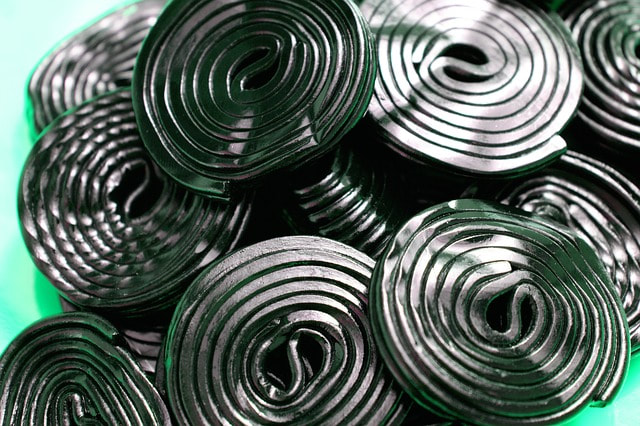Ronit Mor, NDTechnically a legume, related to beans and peas, licorice has a rich and ancient history of use as a medicine, being rooted in Indian, Chinese, Greek and Egyptian traditions, alike. Its sweetness results from the presence of glycyrrhizin (or glycyrrhizic acid or glycyrrhizinic acid), a compound 30-50 times sweeter than sugar. But glycyrrhizin’s properties go way beyond its sweetness; with over 1,500 published studies on the National Institutes of Health's US National Library of Medicine, it is also one of the most powerful antiviral compounds ever studied Antiviral action against herpes virus, HIV, hepatitis virus, SARS coronavirus and influenza virus
Scientists from Sun Yat-sen University in China studied the antiviral potential of licorice. They found that several triterpenoids in licorice, such as glycyrrhizic acid, glycyrrhizin, glycyrrhetinic acid and its derivatives, can provide “broad-spectrum antiviral medicine” against herpes virus, HIV, hepatitis virus, SARS coronavirus and influenza virus. Confirming their findings, researchers from Italy’s University of Padua studied the mechanisms of licorice for viral respiratory tract infections. They found that licorice showed antiviral action against SARS related coronavirus, respiratory syncytial virus by increasing cell membrane protection against the virus, increasing T-cell activity to fight the virus and helping to prevent a latency – or the ability of the virus to hide from the immune system and resume its attack later. And in 2003 – when the SARS virus was in full infection swing around the world – scientists from Frankfurt University Medical School tested licorice’s central antiviral constituent, glycyrrhizin. In this groundbreaking study, published in the British Medical Journal Lancet, the researchers tested glycyrrhizin along with three conventional antiviral medications on infected cells from SARS-infected individuals who were admitted into the Frankfurt University clinic. In fact they tested two different infective types of the SARS coronavirus, FFM-1 and FFM-2. The researchers found that the glycyrrhizin provided the strongest effects against the virus compared to the other medicines. More importantly, they found that glycyrrhizin prevented replication of the SARS-CoV. They summarized their findings in the following manner: “The [recent] outbreak of SARS warrants the search for antiviral compounds to treat the disease. At present time, no specific treatment has been identified for SARS-associated coronavirus infection… Of all the compounds, glycyrrhizin was the most active in inhibiting replication of the SARS-associated virus. Our findings suggest that glycyrrhizin should be assessed for treatment of SARS.” I find it amazing and not surprising that this study received little mainstream media coverage, despite its profound importance to human health. Why “not surprising” is a topic for discussion in a future article. Antiviral action against human respiratory syncytial virus (HRSV) The fact that licorice can more broadly stop viral respiratory infections was also shown in a study from Taiwan’s Kaohsiung Medical University. Here researchers tested two different preparations of licorice root against the human respiratory syncytial virus, also called HRSV or RSV. The researchers found that licorice extracts significantly decreased viral infection and replication among the infected cells. This was accomplished, according to the researchers, by the licorice preventing the attachment of the viruses onto cell membranes, along with stimulating the secretion of interferon among the cells. GI-related bonus Licorice root also shows promise in treating the symptoms of acid reflux and heartburn associated with GERD (gastroesophageal reflux disease. ) The licorice root also helps with relieving feelings of nausea and vomiting. One study found that glycyrrhizic acid can suppress the toxic bacteria H. pylori, and can prevent it from growing in the gut. There is also research showing people who have peptic ulcer disease, heartburn, or gastritis experience an improvement in symptoms when taking de-glycyrrhizinate licorice (DGL). To Summarize… These and other studies prove that licorice can inhibit lethal viral infections, help the body stimulate the production of its own antiviral form of interferon, help increase T-cell activity to fight the virus, and help prevent virus latency (the ability of the virus to hide from the immune system and resume its attack later.) This is a prime example of how herbal medicine works with the body instead of against it – helping the body heal itself. Caution It is not recommended to consume licorice for more than 4 weeks at a time! Too much glycyrrhizic acid can lead to low levels of potassium in the body (hypokalemia) which causes muscle weakness. It can also elevate blood pressure, swelling, and heartbeat irregularity. Note that children as young as 10 years old have been hospitalized because of hypertension after ingesting too much licorice. Women who are pregnant or breastfeeding and people with hypertension are advised by the FDA Trusted Source to avoid licorice in all forms. Take Home Message First, do NOT panic. Do not let media pandemic frenzy, which seems to occur at least once a year on the dot, get you into a panic mode. While the new coronavirus ravages much of China and world leaders rush to close their borders to protect citizens from the outbreak, the flu has quietly killed 10,000 in the U.S. so far this influenza season. Second, start building your very own green medicine cabinet in preparation for "rainy days". It’s time, don’t you agree? Make sure it includes at least the following high-potency, natural weapons of viral destruction:
Comments are closed.
|
Archives
October 2022
Categories
All
|
|
FOLLOW US
|
RESOURCES
|
©2020-2024 Ronit Mor LLC. ALL RIGHTS RESERVED
All statements on this website have not been evaluated by the Food and Drug Administration. The content of this website is not intended to diagnose, treat, cure, or prevent any disease.
All statements on this website have not been evaluated by the Food and Drug Administration. The content of this website is not intended to diagnose, treat, cure, or prevent any disease.


 RSS Feed
RSS Feed
